Entertainment
Dirty Tricks And Bribes: 10 Ways Big Media Companies Sabotage Independent Publishers

By Joshua Tyler
| Updated
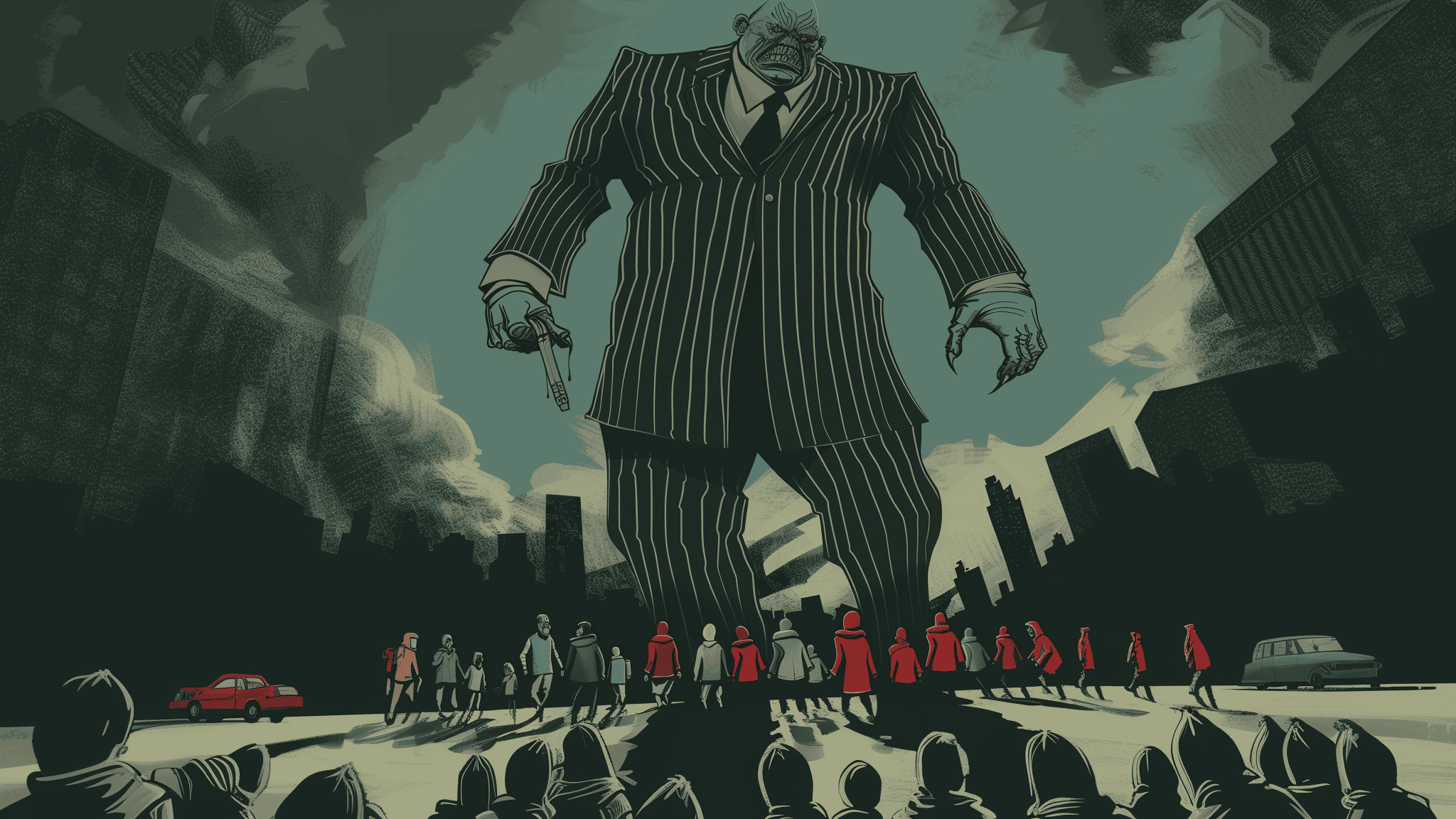
We’ve been forced to shut down day-to-day publishing operations on GIANT FREAKIN ROBOT. Which means I have more time on my hands. Most of that time is now focused on our YouTube channel, but whatever I have left I plan to spend helping independent publishers.
Not everyone thinks they need help, so here’s my first warning: They really are out to get you.
Big media companies take many forms. Some of them are massive new media conglomerates owned by hedge funds who’ve bought up independent sites and turned them into zombie content farms. Others are old media monsters who lumber around the content space like King Kong, smashing everything in their path.
Make no mistake: They see independent publishers as their enemy and always have. They’ll do anything to ensure independents can’t get a foothold in what they now view, after decimating the original independent publishers who built the internet, as their personal domain.
Your big media brand competitors have infinite money, infinite employees, and infinite connections. They use them in ways that you, as an independent publisher, would never imagine and would likely view as unethical. What follows are a few of the techniques I’ve caught them using to destroy this site, and now they’re using them on you.
Infiltration

Every now and then, independent publishers try to form alliances as a way to stand up against the onslaught of money from big media companies being used to sabotage them. Big media companies then send teams to infiltrate and sabotage these groups, usually in subtle ways but sometimes more overtly.
Often they position themselves as a friendly force who wants to work with independents. As a carrot, they dangle the idea that they might even buy these sites and make the owners rich, or in some way invest in them. Sometimes they pretend to be so friendly and altruistic that they want to help.
It’s almost never true. They’re mining you for data and keeping you divided. They know exactly what they’re doing.
Toxic Link Creation

Ever wonder why your site has so many crappy, suspicious sites linking to it, even though you never buy any links? Some of it happens organically, from content scrapers who think they can make a buck by robbing you. But not all of it.
Big media organizations routinely use Negative SEO to keep smaller sites down. If you start encroaching on a keyword they think belongs to them, they’ll begin intentionally paying off link-buying services to purchase toxic links that redirect to your website.
How much this negatively affects your search rankings is unknown, but it definitely doesn’t help.
Content Copying
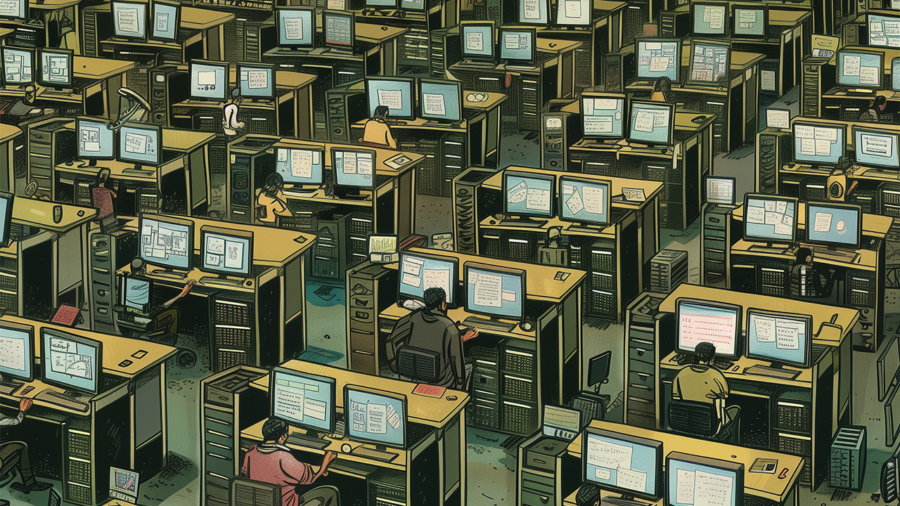
Most of the big media content farms run algorithms which determine what they’ll write. Those algos are based on copying what’s working for their competitors. They analyze what others are doing and copy it. The algorithm they use assigns titles and topics and even creates outlines instructing their writers on what to write step by step.
So, if an independent publisher writes an article about the Best Star Trek Starships and it starts doing well, the big media algorithms will detect that and start auto-generating copycat articles, which they assign to writers.
They’ll produce dozens of Best Star Trek Starships articles all at once, flooding the keyword they’re trying to steal. They keep producing them using writers who, in some cases, are paid as little as $1 an article, until their content drowns out the original article they’re copying. It works, and they’ll eventually steal whatever traffic and interest momentum the original article was generating.
Smear Campaigns
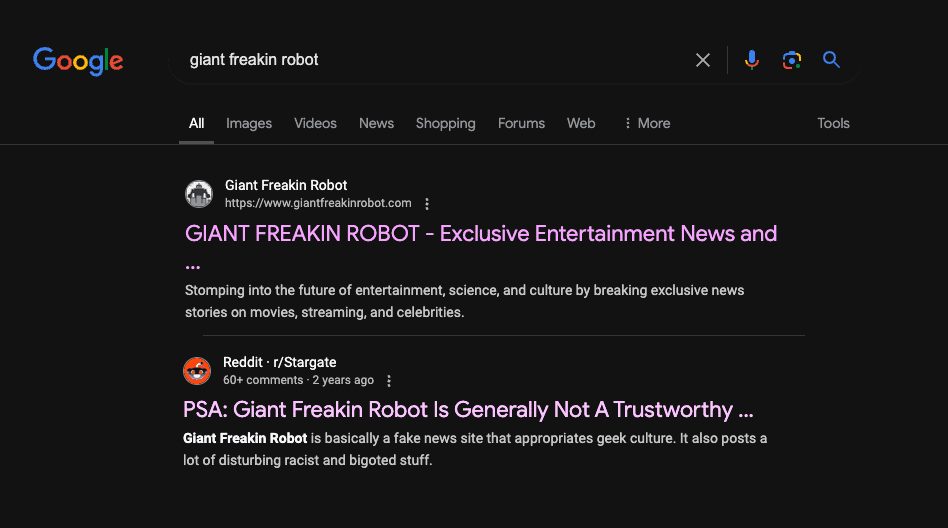
Any independent publisher starting to get a positive buzz is seen as a threat, so the big media companies use their PR teams to pose as readers and experts. Those fake accounts are then used to smear the competition.
Those attacks take many forms. Sometimes they create entire Reddit threads with titles like “Site A Is A Scam”. And then because Google favors Reddit, anyone searching for “Site A” will now see that as one of the first search results.
More often, they leverage comments on trust evaluation platforms and on social media. They’ll regularly slander your independent brand or advise people to stay away from you because you’re a liar or you’ll rip them off.
Threats And Intimidation

Any independent publisher that starts doing too well, will inevitably be subjected to threats from staff at the big media brands.
These threats take many forms and have different goals. Some will demand you remove a post they don’t like. In other cases, they’ll demand you hand over sources to them because they’re unhappy you’ve broken a story they believe belongs to them.
The consequences for refusing to comply vary. Often they’ll threaten to use their power to damage your PR contacts and limit your access if you don’t comply. In other cases, they threaten smear campaigns in which they will leverage their superior distribution to write negative articles about your site or use their PR teams to create online smear campaigns disguised as organic hate.
Lawfare
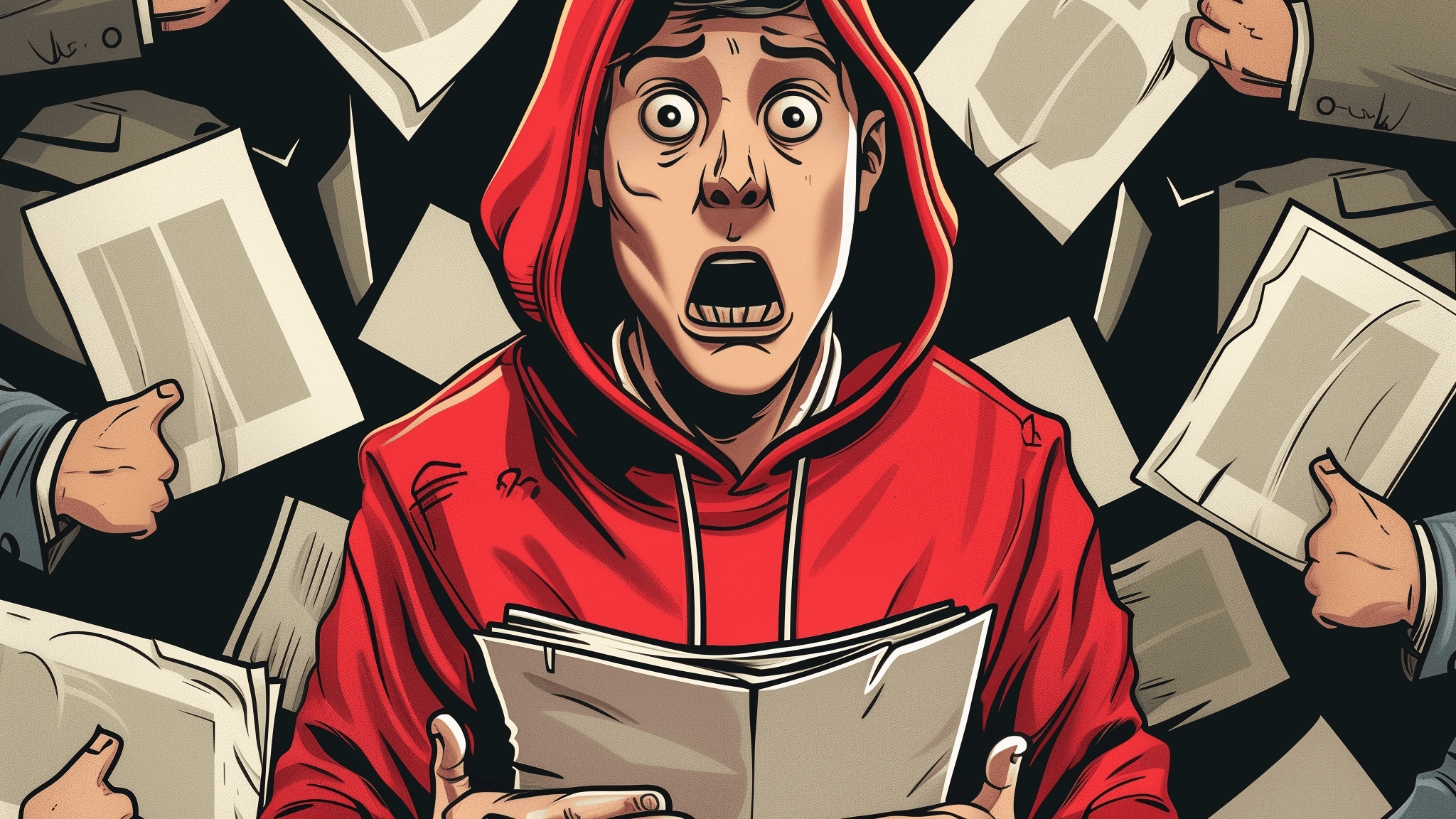
In the early 2000s old media companies began threatening distribution platforms like Facebook and Google with lawsuits if their content wasn’t given preferential treatment over independent publishers. That worked, and it’s not the only way they use their well-funded legal muscle.
Should an independent publisher make the mistake of accusing a big media brand of any of the items on this list, they’re likely to be subjected to legal action.
You might think truth is a sure defense, but defending yourself against these sorts of lawsuits will cost hundreds of thousands of dollars and in the end, whatever lawyer you’re able to hire won’t be as good as theirs. You’ll be forced to settle, paying them off with a smaller sum and a promise to shut your mouth.
Fake Acquisition Offers
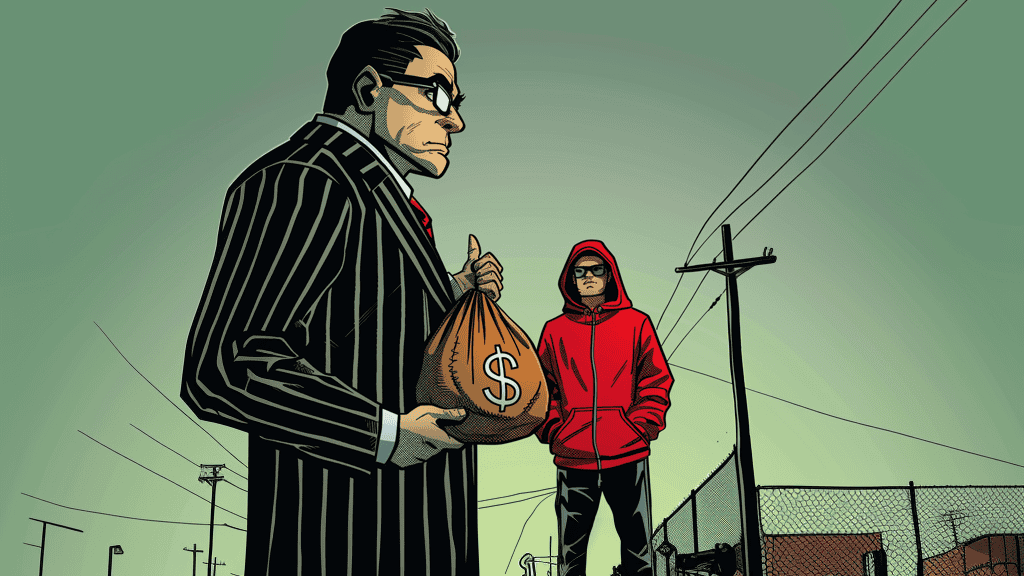
There are legitimate media companies acquiring smaller brands, which they’ll then hollow out and dump their AI-generated content into. However, some big media brands regularly fake acquisition offers to smaller sites so they can gain access to their data.
Once they have your data, they’ll then make an offer so low they know you won’t take it, and use that data to improve their own sites and steal any keywords you might be beating them at.
Backlink Stacking
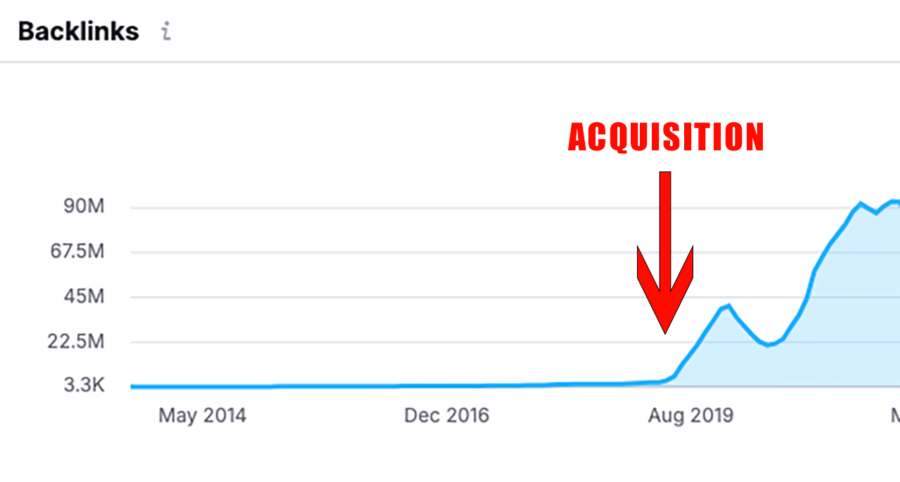
Much of how Google decides whether a publisher is of high quality is based on backlinks. Big media brands use money to create hundreds of thousands of backlinks to their sites en masse.
If you’re looking for evidence, take a look at the backlink analytics for any independent publisher acquired by a big brand. You’ll see a massive spike in the number of backlinks going to that site, immediately after the completion of its acquisition.
Did people suddenly start organically liking the site more and linking to it more just because some big company bought it? Unlikely.
Technical Sabotage

Should an independent publisher have something go viral, that success is almost always followed by some sort of DDOS attack which takes down their server.
Trying to create an email newsletter signup? Expect to be immediately slammed with thousands of fake users signing up so they can report your newsletter as spam and get it banned from being visible on email services.
Technical sabotage takes many forms, and it’s impossible to prove where it’s coming from. But if you’ve done this long enough, you’ll start to notice a very suspicious pattern.
Leveraging Partnerships With Big Platforms

At the recent Google Creators Conversation Event with Independent publishers, Google seemed to express concern that giving independent publishers placement over big brands might make big brands mad.
Is it a coincidence that every platform seems to give big brands preferential treatment? Probably not.
Is it a coincidence that Google suddenly gave Reddit the top spot in all their search results right after signing an AI deal with them? It’s a question worth asking.
Did I miss any dirty tricks? Let me know in the comments below.
Entertainment
Best Mothers Day gifts: Show mom some love

Mother figures are the backbone of the world. Yours may be your biological mother, or maybe she’s your mother-in-law, your best friend’s mom, or simply someone whose motherly instinct has helped you through hard times.
Moms teach you the adulting necessities, give advice even if the problem is your fault, and above all, they put up with your shit and (almost) never complain.
The game plan here isn’t just to snag the last bouquet at CVS just so you’re not the kid who forgot Mother’s Day (but definitely also get flowers). And you don’t even need to spend a lot of money. (Peep our list of Mother’s Day gifts that cost less than $50. Want even more cheap gift ideas?
Skip the generic mugs and show your appreciation with a gift picked just for her: Whether it’s something to make a part of her life easier, something she’s mentioned wanting in passing, or simply something to make her feel like a damn queen, you can’t put a price on everything she’s done for you, but heartfelt gifts certainly help.
After all, they say “No matter how hard you try, you always end up like your mother.” But is that even a bad thing?
Entertainment
Ban subscriptions and get Microsoft Office 2024 for life for just £121

TL;DR: Grab Microsoft Office 2024 Home and Business for PC or Mac for just £120.54 through June 1.
You wouldn’t keep paying for Netflix if you could own your favorite shows, right? So why are you still subscribing to Office apps you use every day? Microsoft 365’s price keeps going up, but there’s finally a way to break free — and it’ll cost you way less in the long run.
Microsoft Office 2024 is the answer you’ve been looking for. Instead of monthly payments, simply pay £120.54 once and be set for life (reg. £188.37). It’s that simple. And, yes, this lifetime download works for PC or Mac.
What’s included?
This license comes with:
-
Word
-
Excel
-
PowerPoint
-
Outlook
-
OneNote
The newest version of Microsoft Office is a little different from Microsoft 365. But just because you’re switching to a lifetime license doesn’t mean you’ll miss out on some of the most recent updates. Word and Excel both still have AI integrations for text suggestions and smart data analysis, and PowerPoint still has improved tools for recorded presentations.
Once you’ve redeemed your purchase, you can install your apps on one computer. After that, they’re yours to use however you want. No more subscription fees or sudden price hikes to worry about.
Why rent when you can own?
Mashable Deals
Get a Microsoft Office lifetime license on sale for £120.54 with no coupon needed.
StackSocial prices subject to change.
Entertainment
Wordle today: Answer, hints for May 9, 2025

Oh hey there! If you’re here, it must be time for Wordle. As always, we’re serving up our daily hints and tips to help you figure out today’s answer.
If you just want to be told today’s word, you can jump to the bottom of this article for today’s Wordle solution revealed. But if you’d rather solve it yourself, keep reading for some clues, tips, and strategies to assist you.
Where did Wordle come from?
Originally created by engineer Josh Wardle as a gift for his partner, Wordle rapidly spread to become an international phenomenon, with thousands of people around the globe playing every day. Alternate Wordle versions created by fans also sprang up, including battle royale Squabble, music identification game Heardle, and variations like Dordle and Quordle that make you guess multiple words at once.
Wordle eventually became so popular that it was purchased by the New York Times, and TikTok creators even livestream themselves playing.
What’s the best Wordle starting word?
The best Wordle starting word is the one that speaks to you. But if you prefer to be strategic in your approach, we have a few ideas to help you pick a word that might help you find the solution faster. One tip is to select a word that includes at least two different vowels, plus some common consonants like S, T, R, or N.
What happened to the Wordle archive?
The entire archive of past Wordle puzzles was originally available for anyone to enjoy whenever they felt like it, but it was later taken down, with the website’s creator stating it was done at the request of the New York Times. However, the New York Times then rolled out its own Wordle Archive, available only to NYT Games subscribers.
Is Wordle getting harder?
It might feel like Wordle is getting harder, but it actually isn’t any more difficult than when it first began. You can turn on Wordle‘s Hard Mode if you’re after more of a challenge, though.
Here’s a subtle hint for today’s Wordle answer:
Gibberish.
Mashable Top Stories
Does today’s Wordle answer have a double letter?
There are no recurring letters.
Today’s Wordle is a 5-letter word that starts with…
Today’s Wordle starts with the letter T.
The Wordle answer today is…
Get your last guesses in now, because it’s your final chance to solve today’s Wordle before we reveal the solution.
Drumroll please!
The solution to today’s Wordle is…
TRIPE.
Don’t feel down if you didn’t manage to guess it this time. There will be a new Wordle for you to stretch your brain with tomorrow, and we’ll be back again to guide you with more helpful hints.
Are you also playing NYT Strands? See hints and answers for today’s Strands.
Reporting by Chance Townsend, Caitlin Welsh, Sam Haysom, Amanda Yeo, Shannon Connellan, Cecily Mauran, Mike Pearl, and Adam Rosenberg contributed to this article.
If you’re looking for more puzzles, Mashable’s got games now! Check out our games hub for Mahjong, Sudoku, free crossword, and more.
Not the day you’re after? Here’s the solution to yesterday’s Wordle.







